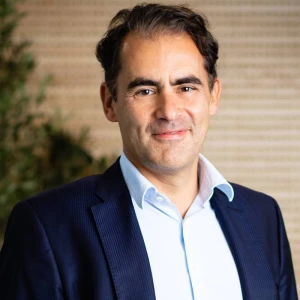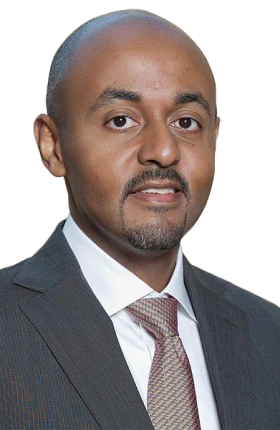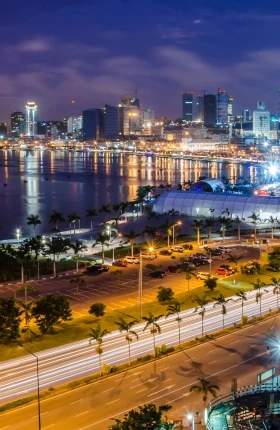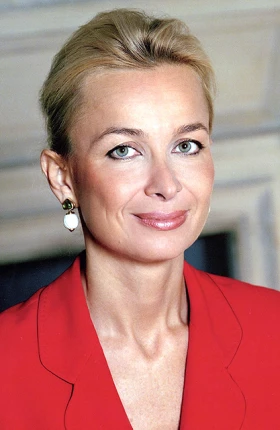In the past three years the world has pivoted sharply. Mid-2021, the global pandemic was receding, inflation and interest rates were low, ChatGPT hadn’t been released, there was no war in Europe and a peace accord in the Middle East was tantalizingly close.
Fast-forward to today and the global environment looks completely different. Companies, governments, and NGOs are all looking for ways to navigate it and manage a fresh set of challenges, from Geopolitics to the Green transition, the rapid evolution of GenAI, Government indebtedness, declining populations, and Generation Alpha. This is what we call the “5G world”.
Many solutions to the 5G challenges will be found in Africa. While the continent still faces undeniable challenges, not the least being the region most impacted by the impact of climate change, it also has massive renewable energy potential. it holds 40% of the critical minerals to transition from a carbon-dependent economy; its arable lands can give the world food security; the Congo Basin and African lands have massive carbon sequestration potential; and the continent will have a 2.5 billion-young population by 2050, a tremendous human capital.
Africa Holds Many of the Keys to This 5G World
Geopolitics: With the start of the Ukraine war, the US-China decoupling and the Middle East crisis, geopolitics moved into the boardroom of companies. Bismark famously said that nations have no friends, they only have strategic interests. The current global fragmentation that has emerged over the past three years is a real opportunity for African countries. They have never had so much freedom to choose who they do business with. Africa can remain geopolitically equidistant and insist on integrated investment roadmaps that includes natural resources, but also biopharma, education, manufacturing, or agriculture. A strong refocus on regional blocks is also an opportunity accelerate the long-awaited economic, commercial, political, and logistic integration of Africa.
GenAI: Many believe this is a technology that will fundamentally alter the march of human economic progress. It is exponential not linear. The main forces behind Africa’s golden decade in early 2000s were mobile phones and internet. Just as the internet opened up knowledge and commerce, GenAI will unlock expertise and productivity. Africa needs a lot more productivity, across sectors and all 54 countries. GenAI innovation is also not confined to the US and China. Countries like the UAE or France are becoming key players. No matter what industry you operate in, today you are de facto a technology company. African government leaders and CEOs can’t afford to be sceptical: they must upskill on GenAI, invest in data centres, bring cloud computing costs down, develop the right regulations and sign partnerships to ensure they do not miss this generational opportunity.
Green: The green revolution is just starting. Africa has a key role to play, but it must be on Africa’s terms. The cost of making the green transition is immense: some estimates put it at $9 trillion a year. This money will have to come from somewhere – and the global private sector is awash in cash today. African governments should pay close attention to the green policies of other countries and how they can play their part on these new energy value chains. Given how Africa will be impacted by climate change, a priority focus should be on adaptation and resilience. In Africa more than anywhere else, Green starts with Food and Agriculture, Africa’s single most important investment opportunity. One-third of all food produced in Africa is either wasted or lost. The percentage of agricultural land under irrigation in Africa is 1.5%, compared with 15-20% in Asia. The continent still imports $100 billions of food every year. The call to action is clear: invest in crops, custom fertilizers, storage facilities, processing units, transport, and integrated logistics. Energy is another urgent need: 600 million Africans lack access to energy. Electricity is a true game-changer in development. As with mobile technology, Africa can leapfrog yesterday’s energy systems and bet big on renewables, mini-grids, advanced geothermal, biomass and potentially small/medium nuclear reactors.
Global debt: Over the past few decades, the level of public debt has been rising all over the world. That was supercharged by the pandemic. While there is not a lot of money in public coffers, there is a lot in private purses: sovereign wealth funds, private equity funds, large family offices or big corporates. Africa’s development will be capital-intensive, so it needs new ways to mobilise public and private capital. What do private investors want? They say they want Africa to show a few years of macro stability and regulatory certainty. They want to see a larger pipeline of bankable projects, less forex volatility, more liquidity in capital markets, well-run portfolio assets, better governance, and accountability from public officials. They basically want the conditions in place to make a good return. This is how Africa can reduce its high-risk premiums, which is today higher than actual observed risks. Africa should also continue to push for a reset of the global debt and credit multilateral system. With the youngest population and the most growth upside, it is unfortunately the most capital constrained. Africa should be able to run deficits and rely on debt to fund its next stage development. The rest of the world must consider this when they renegotiate multilateral agreements.
Generation Alpha: In five years, 50% of all Africans will be Generation Alpha (born after 2010) or put another way, one-third of Generation Alpha in the world will live in Africa. Not only does the continent have a significant capital shortage, but it also has a massive labour surplus. This is an amazing demographic dividend, and Africa should not waste it. The call to action is first and foremost to invest in education and job creation. And dare to invest in worldclass higher education. A standout example is Morocco, where several world-class universities have opened in the last 10 years, such as UM6P, one of Africa’s most ambitious endeavours. Moroccan digital skills are now so good that BCG has decided to de-localise one of its biggest AI hubs there. Another key aspect of Generation Alpha is to unleash the power of women on the continent, particularly their entrepreneurial power. Corporates have a big role to play in changing mindsets on this dimension. Finally, Africa can export its soft power and youth creative industries to the world: there is global appetite today for African culture whether in food, fashion, arts, sports or music.
Don’t Miss This Moment
Africa has gone through challenging times since the pandemic. But we believe it is Africa’s time to seize advantage in this “5G” world. We are in the middle of a major geopolitical and macroeconomic reset, with profound economic and societal implications. This creates a unique window of opportunity for Africa, where a bold course of action is required. Parts of the continent are close to the moment of achieving escape velocity, from which there will be no turning back. This year, 12 of the 20 fastest-growing countries in the world will be in Africa. There are many positive developments on the continent which are being ignored and overlooked. It is up to African government and business leaders to set a bold agenda for the years to come.









